
Vibrant Hongdae: The Heartbeat of Seoul's Youth Culture
Hongdae, nestled in the Mapo-gu district of Seoul, is a lively hub teeming with creativity and youthful energy. Known for its close proximity to Hongik University, the area attracts a vibrant crowd of students, artists, and musicians, making it a pulsating center of contemporary Korean culture. As you step into Hongdae, you're immediately enveloped by its electric atmosphere, with colorful murals adorning the streets and an eclectic mix of indie music wafting through the air. Hongdae is a paradise for art lovers and night owls alike. During the day, visitors can explore art galleries, quirky boutiques, and themed cafes that cater to every whim. The streets are a canvas for street artists who showcase their talents, adding to the neighborhood's unique charm. As night falls, Hongdae transforms into a bustling playground with live music performances, dance clubs, and street performances, offering a glimpse into Seoul's dynamic nightlife. Food enthusiasts will find Hongdae a gastronomic delight, with an array of dining options ranging from traditional Korean BBQ to innovative fusion cuisine. The area is also famous for its street food, where you can savor local delicacies like tteokbokki (spicy rice cakes) and hotteok (sweet pancakes). Shopping in Hongdae is an adventure in itself, with fashion-forward stores and vintage shops standing side by side, ensuring that every visitor finds something special to take home.
Local tips in Hongdae
- Visit on a Friday or Saturday night to experience the full vibrancy of Hongdae's nightlife and street performances.
- Explore the Hongdae Free Market on weekends to buy unique handmade crafts directly from local artists.
- Take a stroll down Hongdae Mural Street to appreciate the colorful street art that defines the neighborhood's creative spirit.
- Don't miss the opportunity to try local street food from the numerous food stalls scattered around the area.
- Check out local event listings for live indie music performances and cultural events happening in the area.
Vibrant Hongdae: The Heartbeat of Seoul's Youth Culture
Hongdae, nestled in the Mapo-gu district of Seoul, is a lively hub teeming with creativity and youthful energy. Known for its close proximity to Hongik University, the area attracts a vibrant crowd of students, artists, and musicians, making it a pulsating center of contemporary Korean culture. As you step into Hongdae, you're immediately enveloped by its electric atmosphere, with colorful murals adorning the streets and an eclectic mix of indie music wafting through the air. Hongdae is a paradise for art lovers and night owls alike. During the day, visitors can explore art galleries, quirky boutiques, and themed cafes that cater to every whim. The streets are a canvas for street artists who showcase their talents, adding to the neighborhood's unique charm. As night falls, Hongdae transforms into a bustling playground with live music performances, dance clubs, and street performances, offering a glimpse into Seoul's dynamic nightlife. Food enthusiasts will find Hongdae a gastronomic delight, with an array of dining options ranging from traditional Korean BBQ to innovative fusion cuisine. The area is also famous for its street food, where you can savor local delicacies like tteokbokki (spicy rice cakes) and hotteok (sweet pancakes). Shopping in Hongdae is an adventure in itself, with fashion-forward stores and vintage shops standing side by side, ensuring that every visitor finds something special to take home.
Iconic landmarks you can’t miss
Bukchon Hanok Village
Discover Bukchon Hanok Village, where traditional Korean architecture meets vibrant culture in the heart of Seoul, offering a unique glimpse into the past.
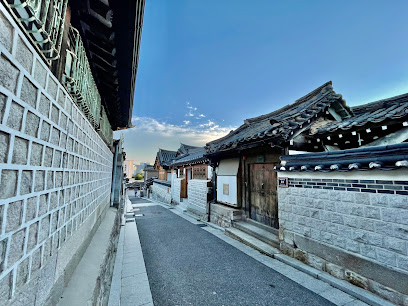
Hongdae Shopping Street
Explore the vibrant shopping and nightlife scene at Hongdae Shopping Street, a cultural hub in the heart of Seoul offering unique shops and exciting events.
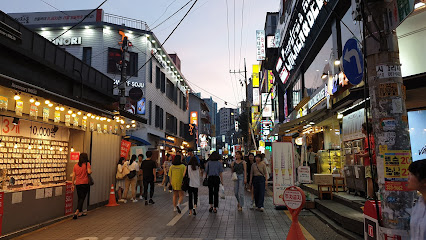
Hongdae Street
Discover the vibrant energy and artistic spirit of Hongdae Street, Seoul's ultimate destination for nightlife, shopping, and cultural experiences.
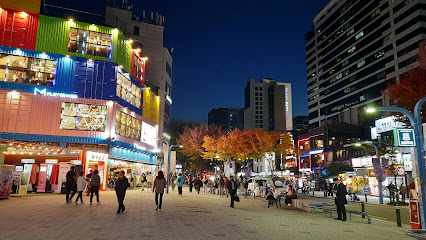
Gyeongui Line Forest Park
Explore the tranquil Gyeongui Line Forest Park in Hongdae, Seoul, where nature meets culture along a transformed railway into a vibrant urban oasis.
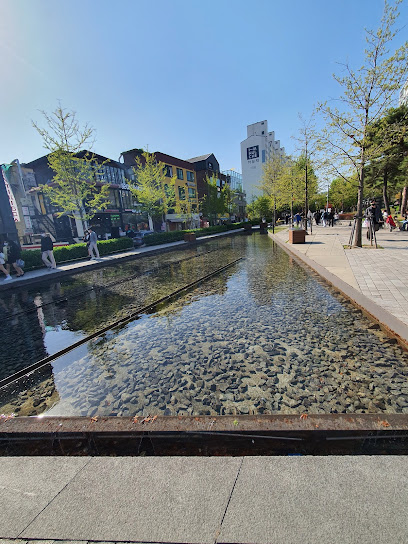
Hongdae Free Market
Dive into creativity at the Hongdae Free Market, where local artists showcase their handmade crafts and the vibrant culture of Seoul comes alive every Saturday.
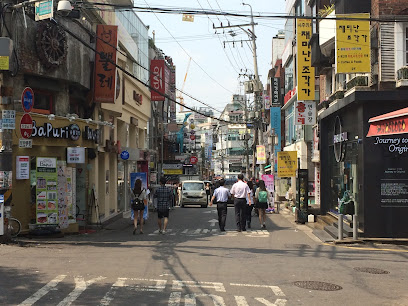
Gyeongui Line Book Street
Explore Gyeongui Line Book Street: A unique blend of literature, art, and culture in the heart of Seoul, ideal for book lovers and casual explorers.
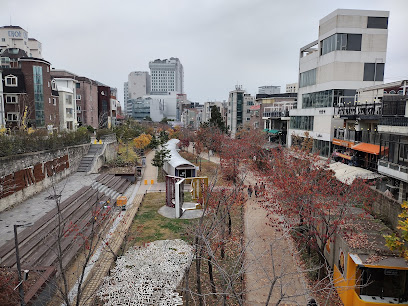
홍대 걷고싶은거리
Experience the enchanting beauty of the Han River in Seoul, where nature meets urban culture, perfect for relaxation and exploration.
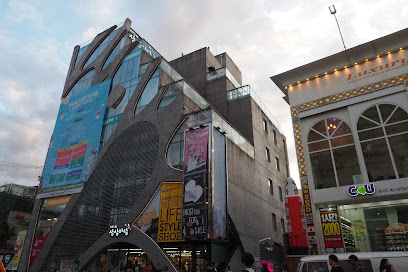
Hongik Park
Experience the vibrant energy and natural beauty of Hongik Park in Seoul, a cultural hub perfect for relaxation, recreation, and artistic expression.
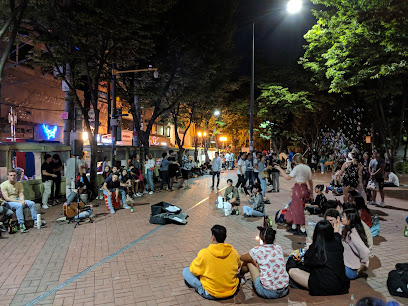
Hongdae Playground
Discover the artistic and energetic spirit of Hongdae Playground, a cultural hotspot in Seoul filled with music, art, and street performances.
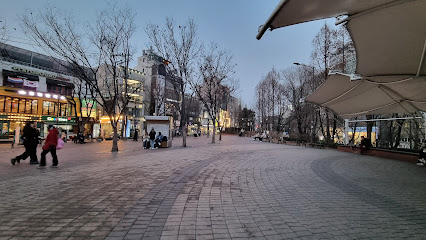
Unmissable attractions to see
Hongdae Shopping Street
Discover the youthful spirit of Seoul at Hongdae Shopping Street, where fashion, art, and entertainment come together in a vibrant atmosphere.
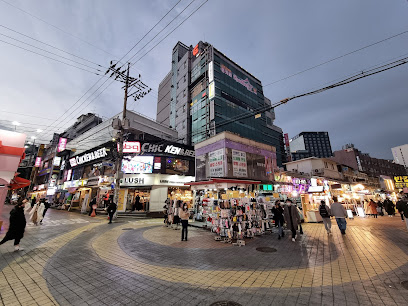
Gyeongui Line Forest Park
Discover the tranquility of Gyeongui Line Forest Park, an urban sanctuary in Seoul that blends nature with vibrant local culture and artistic charm.
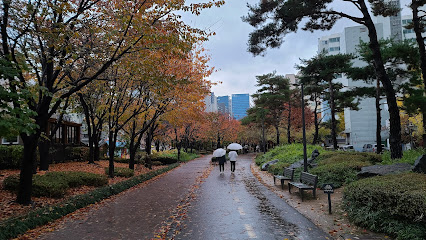
Hongdae Free Market
Explore the artistic pulse of Seoul at Hongdae Free Market, where creativity meets community in a vibrant open-air market every Saturday.
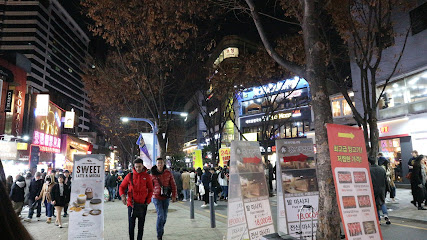
Hongdae Street
Experience the vibrant culture, art, and nightlife of Hongdae Street, Seoul's dynamic hub for creativity and entertainment.
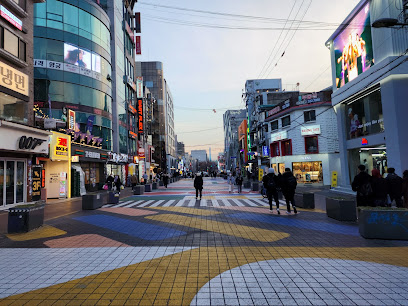
Gyeongui Line Book Street
Discover Gyeongui Line Book Street: A Literary Paradise in Seoul, Perfect for Book Lovers and Culture Enthusiasts.
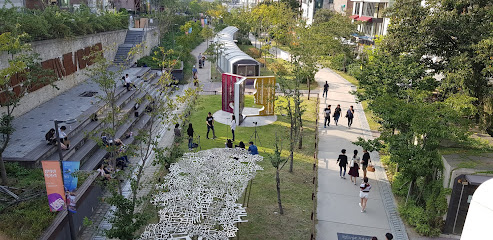
Hongik Park
Explore Hongik Park, a vibrant oasis in Seoul's Mapo-gu, where culture, nature, and community come together for an unforgettable experience.
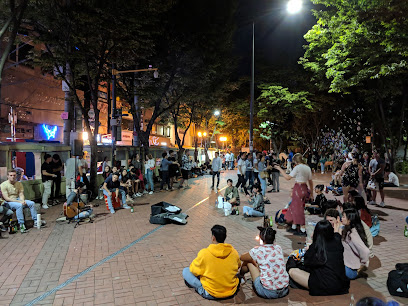
Hongdae Playground
Experience the artistic pulse of Seoul at Hongdae Playground, where vibrant street performances and creative energy come together.
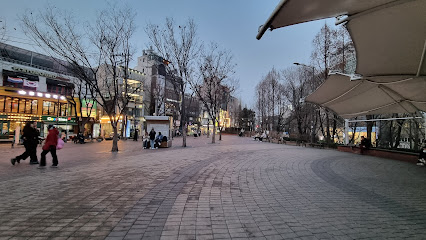
Essential places to dine
Myth Jokbal Hongdae
Discover the authentic taste of Korea at Myth Jokbal in Hongdae—famous for its flavorful pig's trotters and vibrant dining atmosphere.
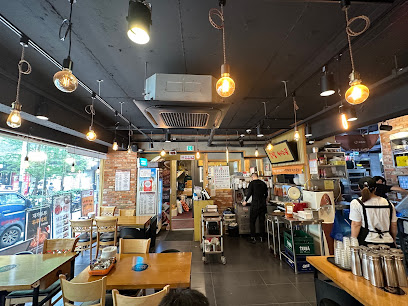
Ciuri Ciuri Italian Restaurant
Experience authentic Sicilian flavors at Ciuri Ciuri Italian Restaurant in Mapo-gu, where every dish tells a story of Italy's rich culinary heritage.
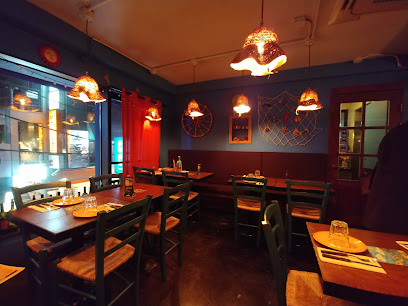
James Cheese
Discover the mouthwatering delights of James Cheese in Mapo-gu, where authentic Korean ribs meet vibrant dining culture.
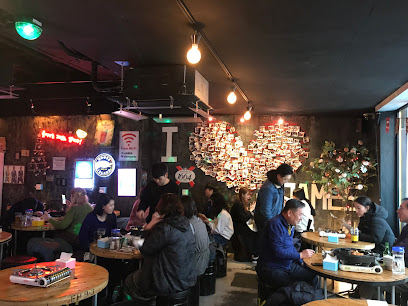
Bistro Jura
Experience innovative Japanized Western cuisine at Bistro Jura in Mapo-gu, Seoul - where culinary tradition meets modern flair.
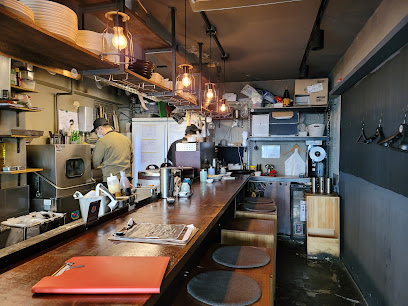
Jinmandu
Experience authentic Chinese cuisine at Jinmandu in Mapo-gu, Seoul – where every dish tells a story.
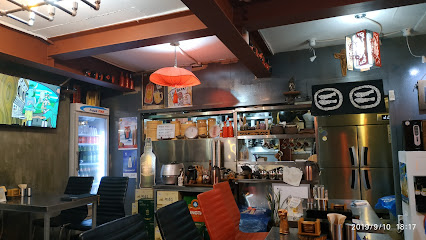
Yoogane Chicken Ribs Hongdae 2
Experience authentic Dak-galbi at Yoogane Chicken Ribs in Hongdae - where vibrant flavors meet lively dining!
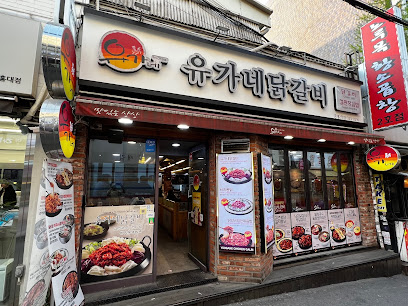
Thedam
Discover authentic Korean traditional cuisine at Thedam in Mapo-gu, Seoul – where every dish tells a story.
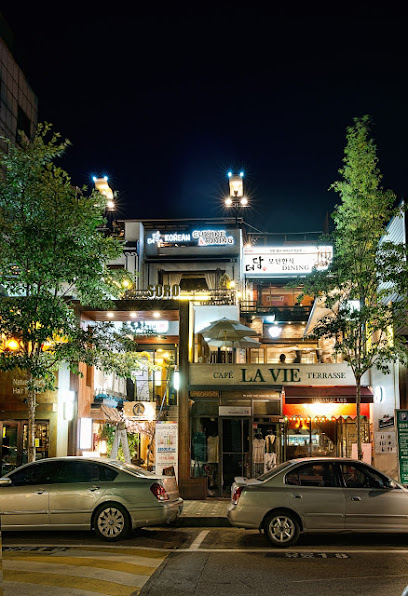
질할브로스 홍대점 (Jilhal Bros Hongdae)
Discover authentic American cuisine at Jilhal Bros in Hongdae – where comfort food meets vibrant city life.
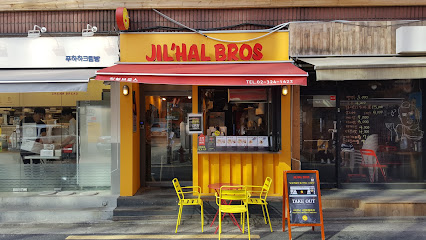
홍대 맛집 홍대IN파스타 | Hongdae Restaurant HongdaeINPasta
Discover authentic Italian cuisine at HongdaeINPasta, where every dish tells a story amidst the vibrant atmosphere of Seoul's Hongdae district.
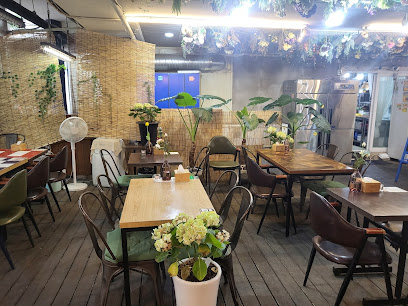
Hongdae Pasta Restaurant Tezkuri
Experience authentic Italian cuisine at Hongdae Pasta Restaurant Tezkuri—where every dish tells a story amidst Seoul's vibrant culture.
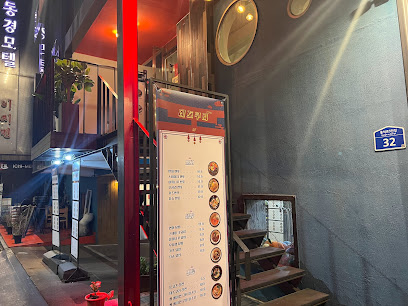
Markets, malls and hidden boutiques
Hongdae Shopping Street
Explore Hongdae Shopping Street, a lively hub in Seoul with trendy shops, street performances, and delicious local cuisine for an unforgettable experience.
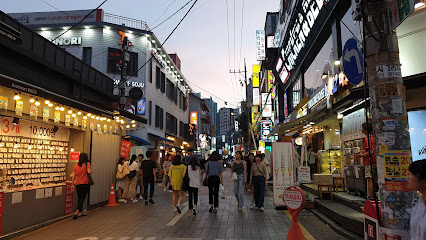
Kakao Friends Hongdae Flagship Store
Explore the whimsical Kakao Friends Hongdae Flagship Store, where charming characters come to life in a vibrant shopping experience.
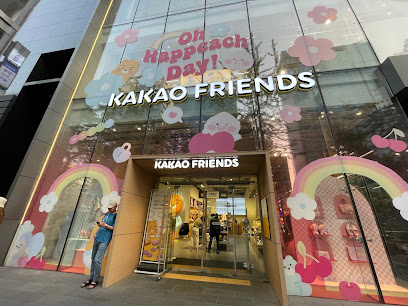
Stylenanda
Explore Stylenanda in Seoul for the latest in cosmetics and fashion trends, where beauty meets culture in a vibrant shopping experience.
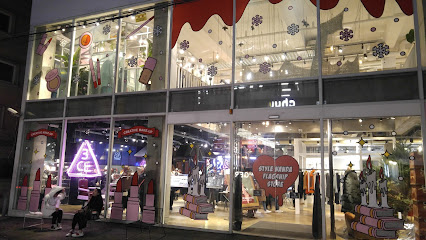
Object
Explore a captivating home goods store in Mapo-gu, Seoul, featuring unique handicrafts and stylish decor items to enrich your living space.
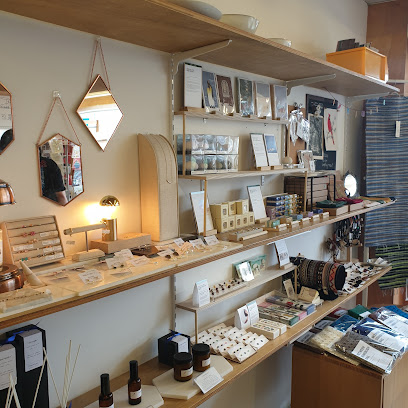
Å LAND Hongdae
Explore the trendy world of fashion at Å LAND Hongdae, where youthful style meets unique Korean designs in the heart of Seoul.
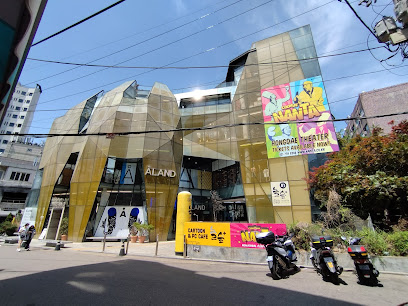
Butter
Discover Butter in Hongdae, Seoul - a stylish home goods store featuring unique decor and gifts that reflect the vibrant Korean culture.
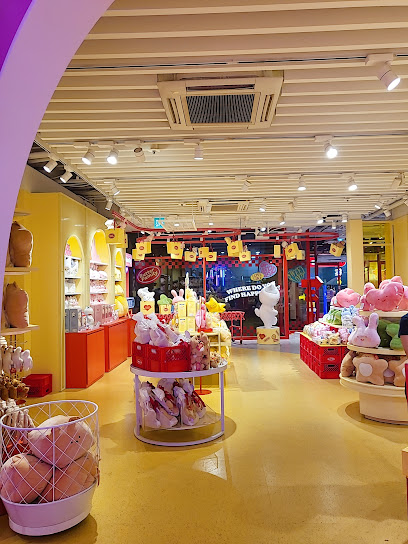
Common Unique
Explore Common Unique, Seoul's trendsetting women's clothing store, offering fashion-forward apparel, chic accessories, and a unique shopping experience.
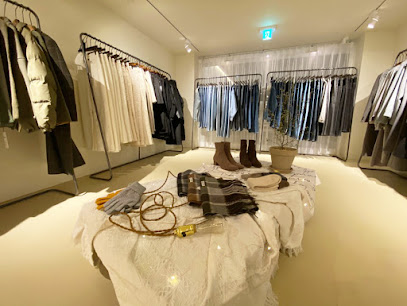
miromiro hongdae
Explore Miromiro Hongdae, a chic women's clothing store in Seoul offering stylish, high-quality fashion for the modern woman.
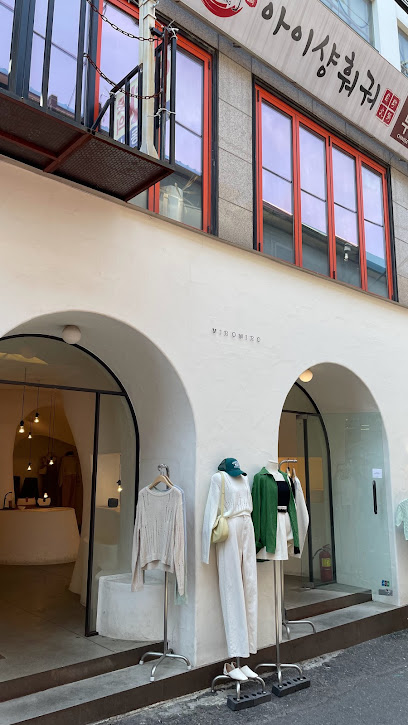
Market A. Hongdae 2 branch
Explore the latest women's fashions at Market A. Hongdae 2 Branch, a must-visit shopping destination in Seoul's vibrant Hongdae district.
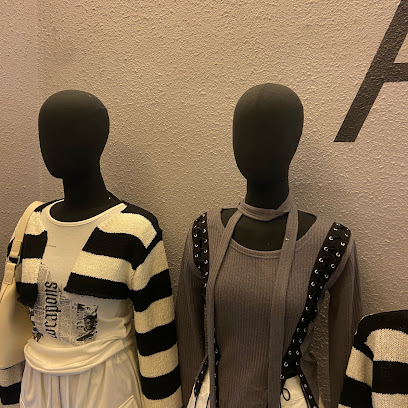
놀다가게 홍대EXIT점
Explore the artistic heart of Seoul at 놀다가게 홍대EXIT점, where unique gifts and local crafts await every visitor.
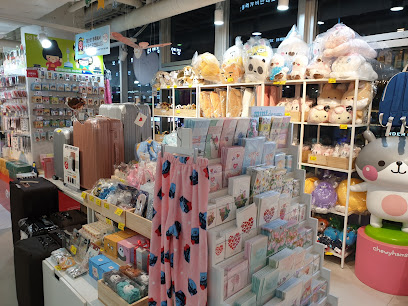
Essential bars & hidden hideouts
Thursday Party
Discover the lively nightlife of Seoul at Thursday Party, a vibrant bar in Mapo-gu offering great drinks and an unforgettable atmosphere.
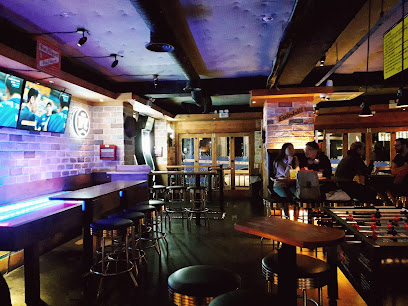
Mike's Cabin
Discover the lively ambiance of Mike's Cabin in Mapo-gu, Seoul - a vibrant bar with Latin music and a welcoming atmosphere.
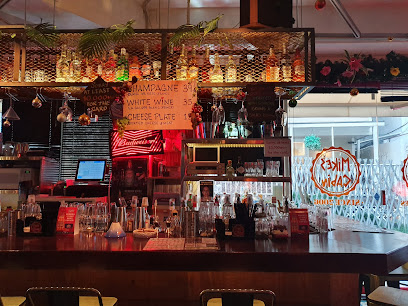
Corner Pub
Discover Corner Pub, the ultimate nightlife destination in Hongdae, Seoul, where vibrant atmosphere and diverse drinks await you.
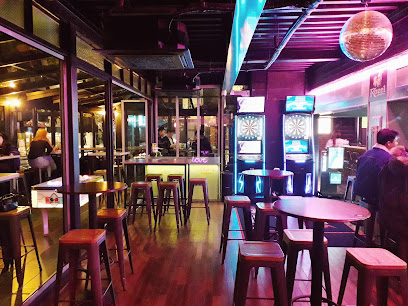
코키펍 홍대직영점
Discover the bustling atmosphere of 코키펍 홍대직영점, Seoul's lively gastropub offering delicious food, drinks, and fun dart games in the heart of Hongdae.
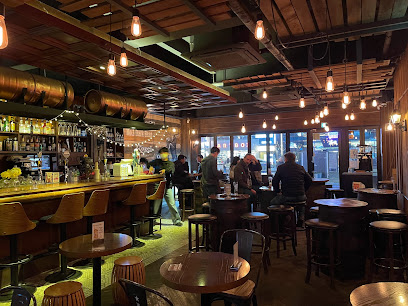
Playground Rooftop Cafe & Bar - Hongdae
Discover the vibrant atmosphere and stunning views at Playground Rooftop Cafe & Bar in Hongdae, Seoul's hotspot for nightlife and relaxation.
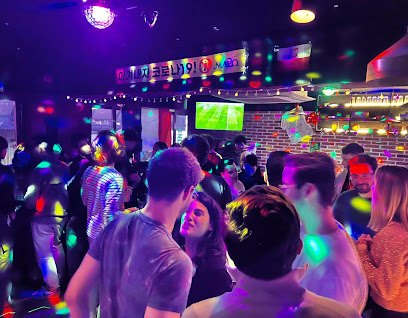
Sangsu-ri Acorn Bar 상수리
Discover the vibrant nightlife of Seoul at Sangsu-ri Acorn Bar, where eclectic drinks and cozy ambiance await you.
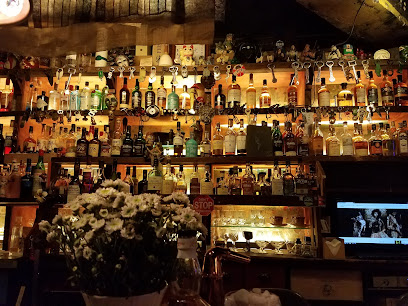
Joons
Experience the vibrant nightlife of Hongdae at Joons, where creative cocktails and a lively atmosphere await.
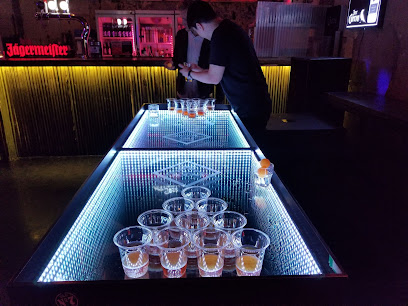
Vinyl
Discover the vibrant nightlife at Vinyl, a bar in Mapo-gu, Seoul, where eclectic ambiance meets a rich selection of cocktails and captivating music.
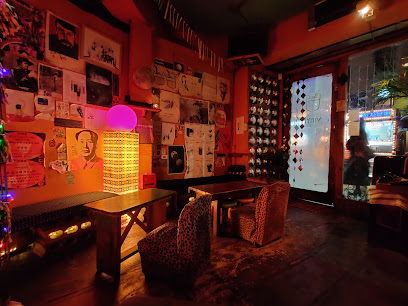
Little Big
Discover Little Big, Seoul's vibrant cocktail bar, where innovative drinks and a lively atmosphere await in Mapo-gu.
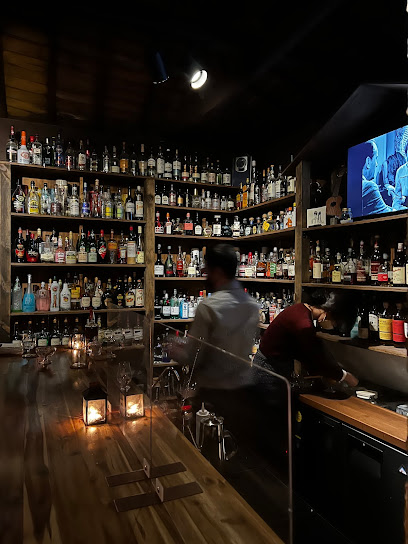
Woodstock Hongdae
Discover the vibrant nightlife of Seoul at Woodstock Hongdae, a bar known for its lively atmosphere, great music, and unique cocktails.
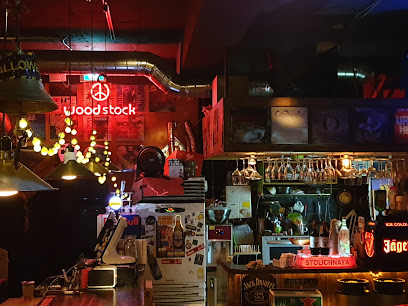
Local Phrases
-
- Hello안녕하세요
[annyeonghaseyo] - Goodbye안녕히 가세요
[annyeonghi gaseyo] - Yes네
[ne] - No아니요
[aniyo] - Please/You're welcome부탁합니다/천만에요
[butakhamnida/cheonmaneyo] - Thank you감사합니다
[gamsahamnida] - Excuse me/Sorry죄송합니다
[joesonghamnida] - How are you?어떻게 지내세요?
[eotteoke jinaeseyo?] - Fine. And you?잘 지내고요. 너는?
[jal jinaegoyo. neoneun?] - Do you speak English?영어 할 수 있어요?
[yeongeo hal su isseoyo?] - I don't understand이해하지 못해요
[ihaehaji mothaeyo]
- Hello안녕하세요
-
- I'd like to see the menu, please메뉴를 보여주세요
[menyureul boyeojuseyo] - I don't eat meat저는 고기를 먹지 않아요
[jeoneun gogireul meokji anaeyo] - Cheers!건배!
[geonbae!] - I would like to pay, please결제하고 싶어요
[gyeoljehago sipeoyo]
- I'd like to see the menu, please메뉴를 보여주세요
-
- Help!도와주세요!
[dowajuseyo!] - Go away!가라!
[gara!] - Call the Police!경찰을 불러주세요!
[gyeongchareul bulleojuseyo!] - Call a doctor!의사를 불러주세요!
[uisareul bulleojuseyo!] - I'm lost길을 잃었어요
[gireul ilheosseoyo] - I'm ill아프단 말이에요
[apeudan marieyo]
- Help!도와주세요!
-
- I'd like to buy...이걸 사고 싶어요
[igeol sago sipeoyo] - I'm just looking구경만 하고 있어요
[gugyeongman hago isseoyo] - How much is it?얼마에요?
[eolmaeyo?] - That's too expensive너무 비싸요
[neomu bissayo] - Can you lower the price?가격을 깎을 수 있어요?
[gageogeul kkageul su isseoyo?]
- I'd like to buy...이걸 사고 싶어요
-
- What time is it?지금 몇 시에요?
[jigeum myeot sieyo?] - It's one o'clock한 시에요
[han sieyo] - Half past (10)10 시 반
[sip si ban] - Morning아침
[achim] - Afternoon오후
[ohu] - Evening저녁
[jeonyeok] - Yesterday어제
[eoje] - Today오늘
[oneul] - Tomorrow내일
[naeil] - 1하나
[hana] - 2둘
[dul] - 3셋
[set] - 4넷
[net] - 5다섯
[daseot] - 6여섯
[yeoseot] - 7일곱
[ilgop] - 8여덟
[yeodeol] - 9아홉
[ahop] - 10열
[yeol]
- What time is it?지금 몇 시에요?
-
- Where's a/the...?...이 어디에요?
[...i eodieyo?] - What's the address?주소가 뭐에요?
[jusoga mwoeyo?] - Can you show me (on the map)?지도로 보여주세요
[jidoro boyeojuseyo] - When's the next (bus)?다음 버스는 언제와요?
[daeum beoseuneun eonjewayo?] - A ticket (to ....)표 하나 주세요
[pyo hana juseyo]
- Where's a/the...?...이 어디에요?
History of Hongdae
-
The name 'Hongdae' originates from Hongik University, established in 1946, which has significantly influenced the neighbourhood's cultural landscape. The university's emphasis on arts and design helped cultivate a vibrant community of artists, musicians, and performers, transforming Hongdae into a focal point for youth culture in Seoul.
-
In the late 1980s, Hongdae began to gain traction as a hotspot for indie music and alternative art. This period saw the emergence of underground music clubs and cafes that nurtured local talent, contributing to the development of Korea’s indie music scene and establishing Hongdae as a creative sanctuary.
-
The turn of the millennium marked a significant rise in street culture within Hongdae. Street performances, art exhibitions, and festivals became commonplace, attracting both locals and tourists. The Hongdae Free Market, which started in 2002, became a platform for local artists to showcase their work, reflecting the area's commitment to grassroots creativity.
-
The 2010s saw Hongdae further solidify its reputation as a centre for youth and innovation, with the proliferation of cafes, boutiques, and creative spaces. The neighbourhood became synonymous with the Korean Wave (Hallyu), as its vibrant nightlife and cultural offerings attracted international attention, making it a must-visit destination in Seoul.
-
As of the 2020s, Hongdae continues to evolve, with ongoing developments that aim to balance its rich cultural heritage with modern urbanization. Efforts to preserve the unique character of the neighbourhood amidst gentrification highlight the ongoing dialogue between tradition and contemporary life, ensuring that Hongdae remains a vital part of Seoul's cultural landscape.
Hongdae Essentials
-
Hongdae is easily accessible from various parts of Seoul. The most convenient way is to take the Seoul Subway Line 2 (Green Line) to Hongik University Station. From popular areas like Myeongdong, you can transfer to Line 4 at Seoul Station and then switch to Line 2. Buses also operate routes to Hongdae from different neighborhoods; the airport bus from Incheon International Airport directly connects to Hongdae, making it a good option for travelers.
-
Hongdae is a pedestrian-friendly area, making it ideal for walking. The subway is the quickest way to get to nearby neighborhoods; Hongik University Station is a key hub. Buses are also available, and taxis are relatively inexpensive. For a more local experience, consider renting a bike from one of the public bike-sharing services. Many cafes and shops are within easy walking distance.
-
Hongdae is generally safe for tourists, but it is wise to exercise caution, especially at night. Some areas around the Hongdae club district may have higher incidences of petty crimes such as pickpocketing. It is advisable to stay in well-lit areas and avoid overly crowded places late at night. Always keep an eye on your belongings and be aware of your surroundings.
-
In case of an emergency, dial 112 for police assistance and 119 for fire and medical emergencies. The nearest hospital is the Hongik University Hospital, which is well-equipped for various health issues. It is advisable to have travel insurance that covers medical emergencies. Pharmacies are also available throughout Hongdae for minor health concerns.
-
Fashion: Do embrace the local fashion scene, which is trendy and expressive. Don't wear overly revealing clothing, especially when visiting cultural sites. Religion: Do respect local customs and traditions. Don't engage in loud conversations in temples or other sacred places. Public Transport: Do be courteous and give up your seat to those in need. Don't eat or drink on public transport. Greetings: Do greet locals with a slight bow as a sign of respect. Don't be overly familiar; maintain personal space. Eating & Drinking: Do try local street food and enjoy dining in cafes. Don't waste food, as it is considered disrespectful.
-
To experience Hongdae like a local, explore the vibrant street art and independent shops. Visit the Hongdae Free Market on weekends, where local artists sell their crafts. Check out live music performances and street performances that happen regularly in the area. Engage with the youth culture, as Hongdae is known for its dynamic nightlife and artistic vibe. Don't forget to visit the nearby Yonsei University campus for a taste of the local student life.
Nearby Cities to Hongdae
-
Things To Do in Incheon
-
Things To Do in Suwon
-
Things To Do in Chuncheon
-
Things To Do in Daejeon
-
Things To Do in Jeonju
-
Things To Do in Andong
-
Things To Do in Daegu
-
Things To Do in Gwangju
-
Things To Do in Pohang
-
Things To Do in Gyeongju
-
Things To Do in Suncheon
-
Things To Do in Ulsan
-
Things To Do in Mokpo
-
Things To Do in Busan
-
Things To Do in Jeju City












